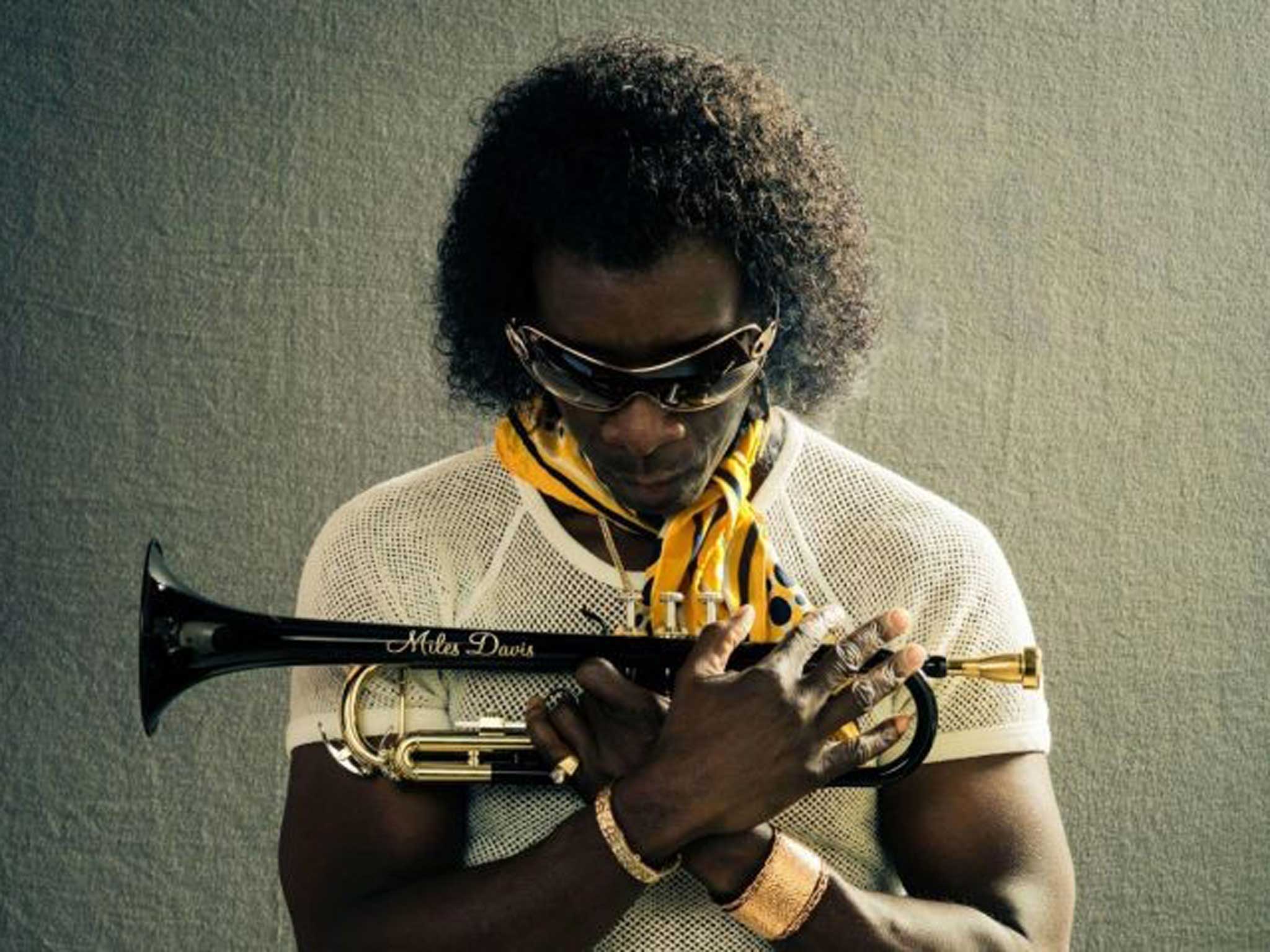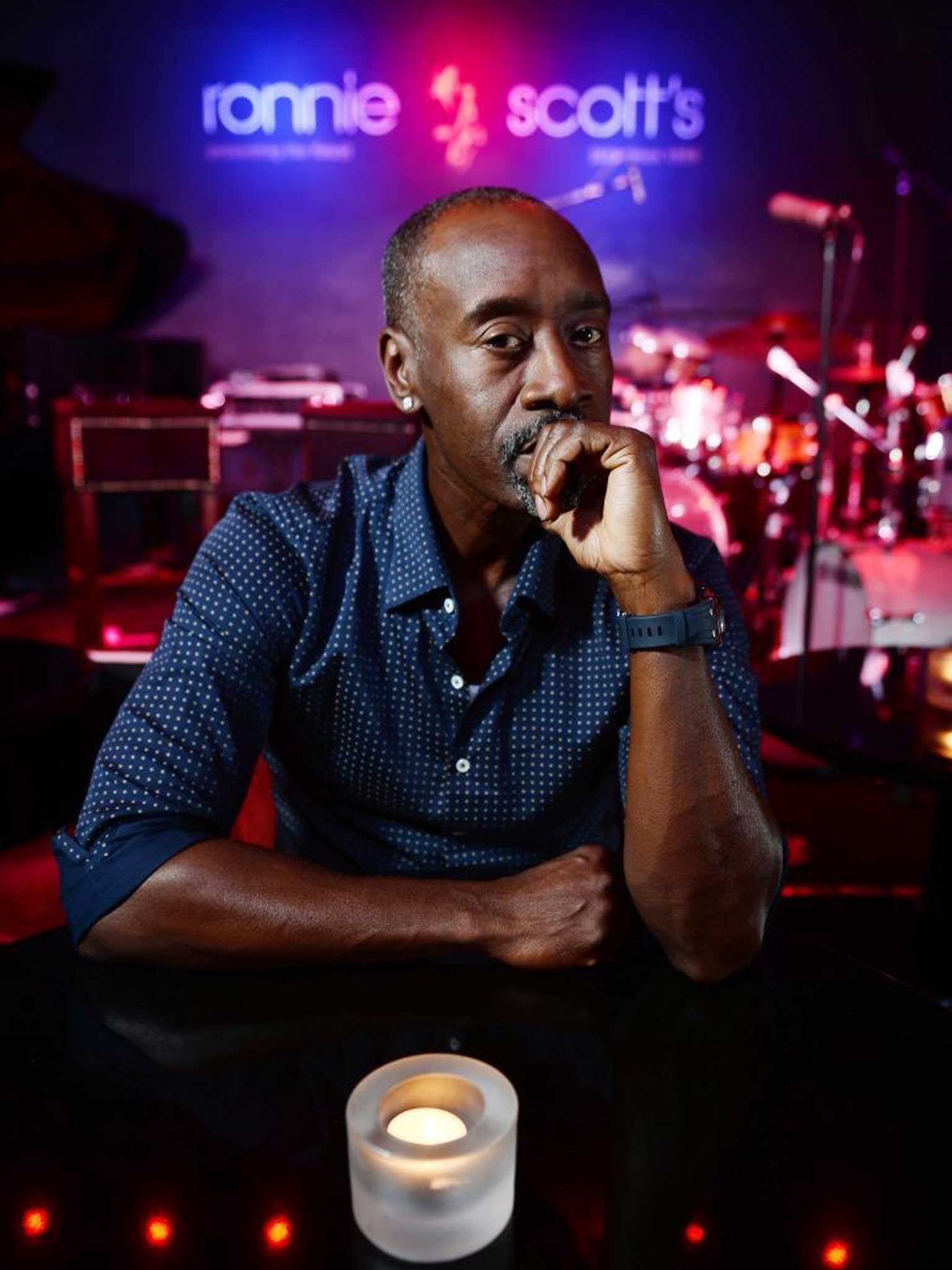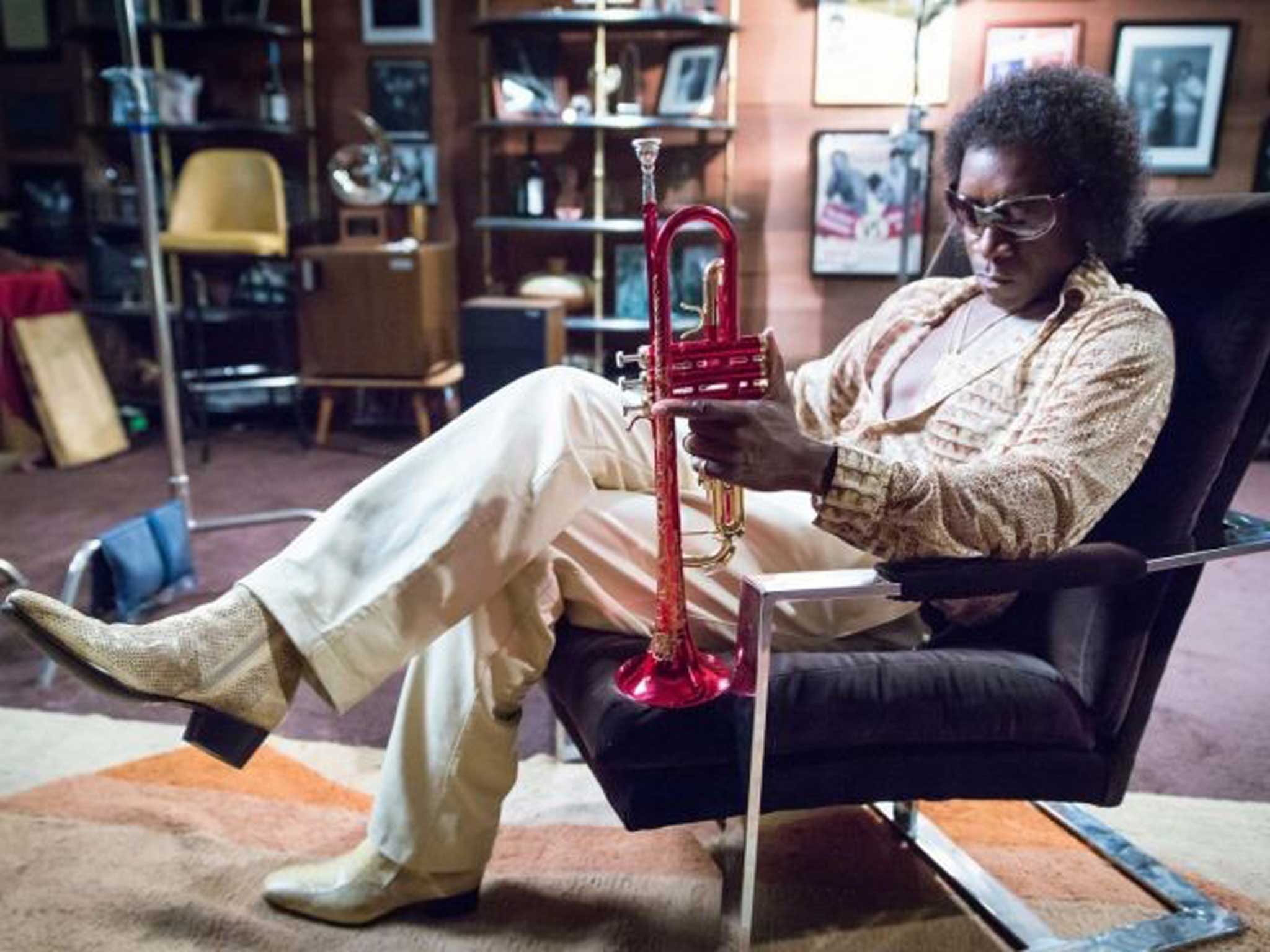Don Cheadle interview: The actor directs and stars in a new biopic of manic jazz legend Miles Davis
Cheadle dispensed with biographical information on Davis, opting to create a freewheeling narrative that takes liberties with the truth, he tells Kaleem Aftab

In moving behind the camera, Don Cheadle fulfils his dream to tell the Miles Davis story. Taking the lead from the jazz trumpeter, he has created a freewheeling narrative that takes liberties with the truth. The idea, he says, was to create a sense of the manic, drug-addled life of the Kind of Blue artist, not a chronological, narrative picture.
"We wanted to do something that felt experiential," he says of Miles Ahead. "We wanted to create something that felt like creativity and had an energy that was externalising an internal process."
The 51-year-old tells me this while lying on a chaise longue in a London hotel. He is tired after a flight from Los Angeles and, leaning back, says I can treat him like he's on a psychiatrist's couch. "So what made you want to be Miles?" I ask, in a Germanic accent. "It was my mother," he quips in return. Despite the fatigue, he has a mischievous glint in his eye. I'm immediately struck by his joie de vivre.
In addition to directing, Cheadle stars as the musician. He dispenses with biographical information on Davis, so those watching are not given details such as his being born in 1926 in Illinois, nor that his father was a dentist and his mother a capable blues pianist, a fact she hid from him. Nor are we told that Davis was married three times, that he studied at Juilliard and spent a few years in Paris before settling in New York City. These are details that Cheadle calls "the facts".
"We were not interested in doing something that [Davis biographer] Quincy Troupe does better. There are so many places that you can go when you want to get that information. We wanted to make a film without being didactic or instructional."

During his lifetime, Davis earned the moniker the Prince of Darkness. As with so many artistic geniuses, his transgressions were largely forgiven because the music was so damn fine. Cheadle does not shy away from showing all sides of the musician.
Set in 1979, Miles Ahead begins with the artist in a rut. A fallow period has seen him go five years without recording a song. His record company, Columbia, are desperate for him to release an LP to rival Kind of Blue and Sketches of Spain. That much is true. Then the film starts freewheeling. A journalist knocks on the door looking for an interview, kick-starting an adventure that sees Davis take his gun to his record company, have a session tape stolen and reminisce over his first wife, Frances Taylor.
The fictional Rolling Stone journalist, Dave Braden, is played by Ewan McGregor. Casting has been the cause of controversy after Cheadle admitted at the Berlin Film Festival that "having a white actor in the film turned out to be a financial imperative". He said it allowed him to raise the budget threshold because it would no longer be seen as a "black film". Cheadle also used a crowdsourcing site to raise $370,000 of the budget.

I ask Cheadle if the financial imperative to cast a white actor means Hollywood whitewashes the story of black American icons. "I don't know if we had cast Chiwetel Ejiofor in that part that it would have been different. From the start, we were going to create that character and I suppose we could have put a black character there – then it would have been five out of six actors being black, rather than four out of six. I think the fact that the character is white says more about race relations and black history than if he wasn't."
Davis was never one to hold his tongue on any subject matter, but he was especially outspoken on race, or at least he was if the media were to be believed. Davis was sometimes criticised for having a problem with Caucasians. It's something Cheadle is quick to shoot down. "If you know anything about Miles Davis, you would know that his closest musical collaborator was Gil Evans. Miles was about the music. Somebody said to me that he had a problem with white people. Well, he had a problem with white people who had a problem with black people, or those who clubbed him outside his own club."
Given Davis's status, it's amazing there has not been a biopic on him before. Cheadle has his own theories as to why. "People see Miles Davis in a reductive way, playing a type of music that is marginalised. Something that smells jazz is seen as black and not a safe bet."

The affinity Cheadle feels towards Davis is clear to me, if not to him: "We come from the same part of the world. He moved to St Louis when he was young. I was born in Kansas City, Missouri. We both grew up playing music, but I don't know any parallels beyond that."
Cheadle's mother was a teacher and his father a clinical psychologist, which might explain why he is comfortable on the couch. He got into acting in the 1980s, appearing alongside Denzel Washington in Devil in a Blue Dress in 1995. There were roles in ER and Boogie Nights, but his best-known collaborations have been with Steven Soderbergh, in Out of Sight, Traffic and the Ocean's Eleven films.
In 2004, Cheadle was nominated for a Best Actor Oscar for Hotel Rwanda. A year later, he played a doctor in Oscar-winner Crash. It's been quite a career for the father of two, who is in relationship with Rosewood co-star Bridgid Coulter.
In a few weeks he will be on screens fighting alongside Iron Man in Captain America: Civil War and as management consultant Marty in House of Lies. He directed several episodes of the show. So is Marty his favourite character? "I don't have a favourite," he responds. "You kind of love the one you live at the moment."
While that sort of attitude landed Davis in trouble, for Cheadle it just adds to his chilled vibe.
'Miles Ahead' is out April 22 . 'Captain America: Civil War' is out April 29
Join our commenting forum
Join thought-provoking conversations, follow other Independent readers and see their replies
Comments
Bookmark popover
Removed from bookmarks